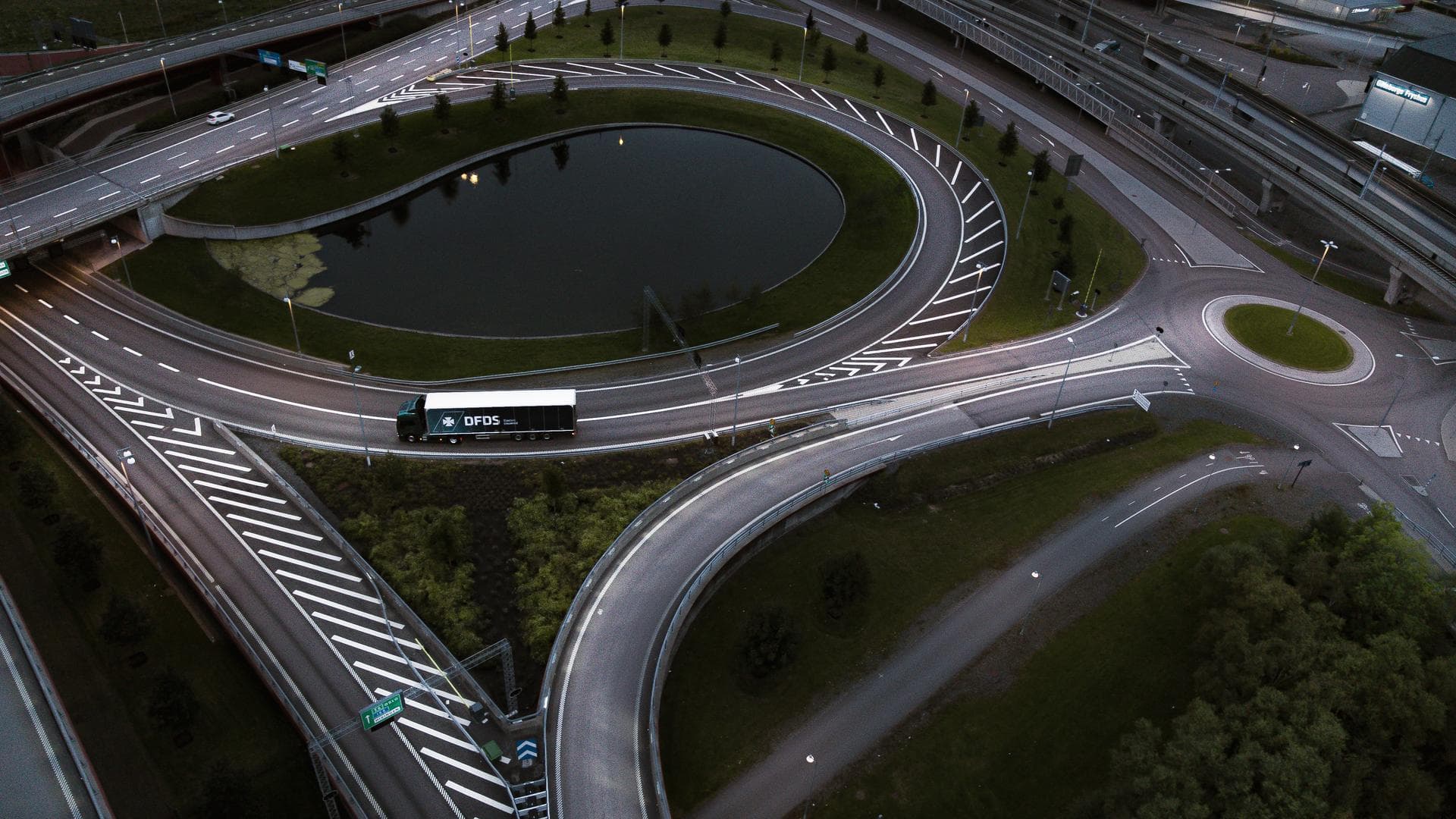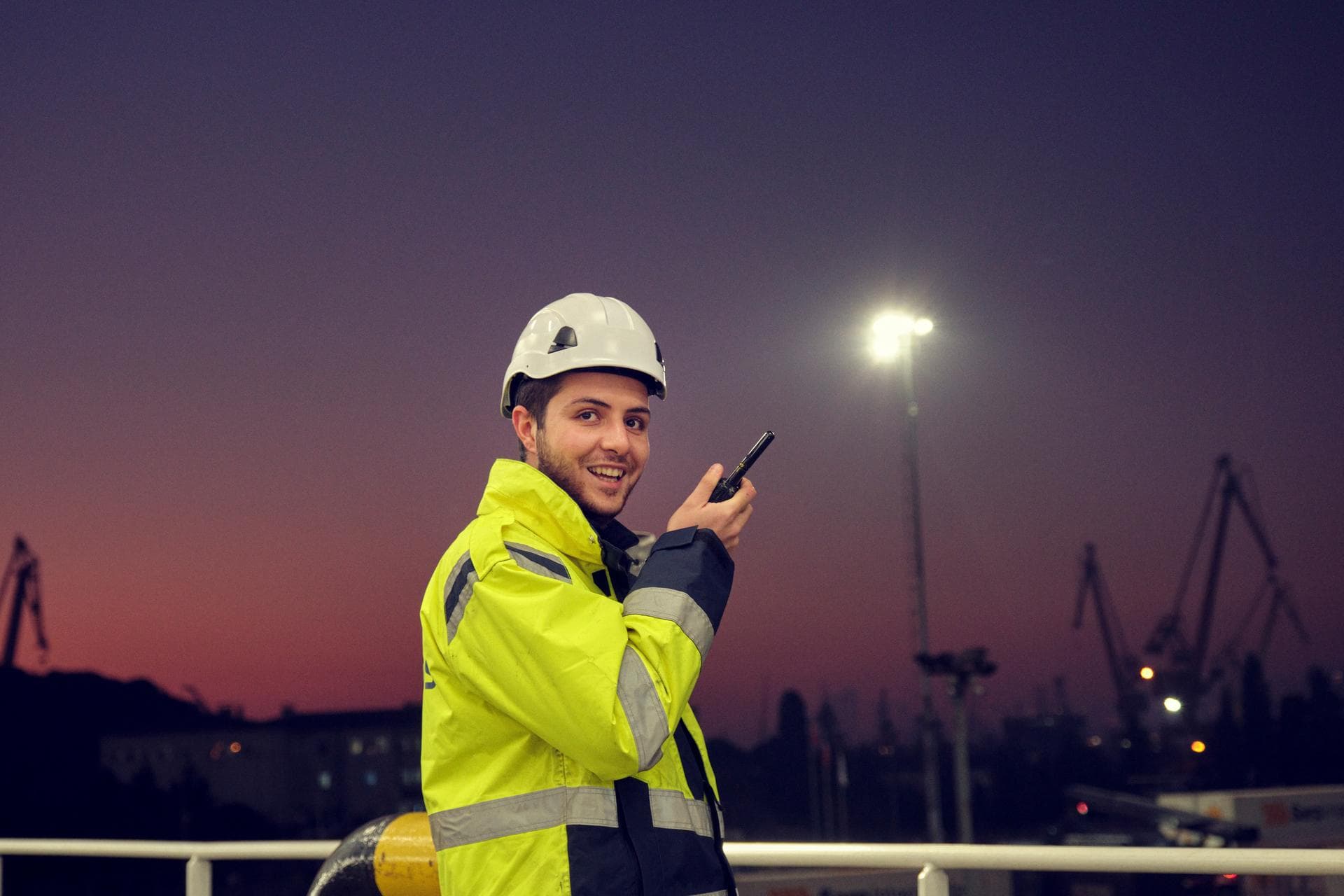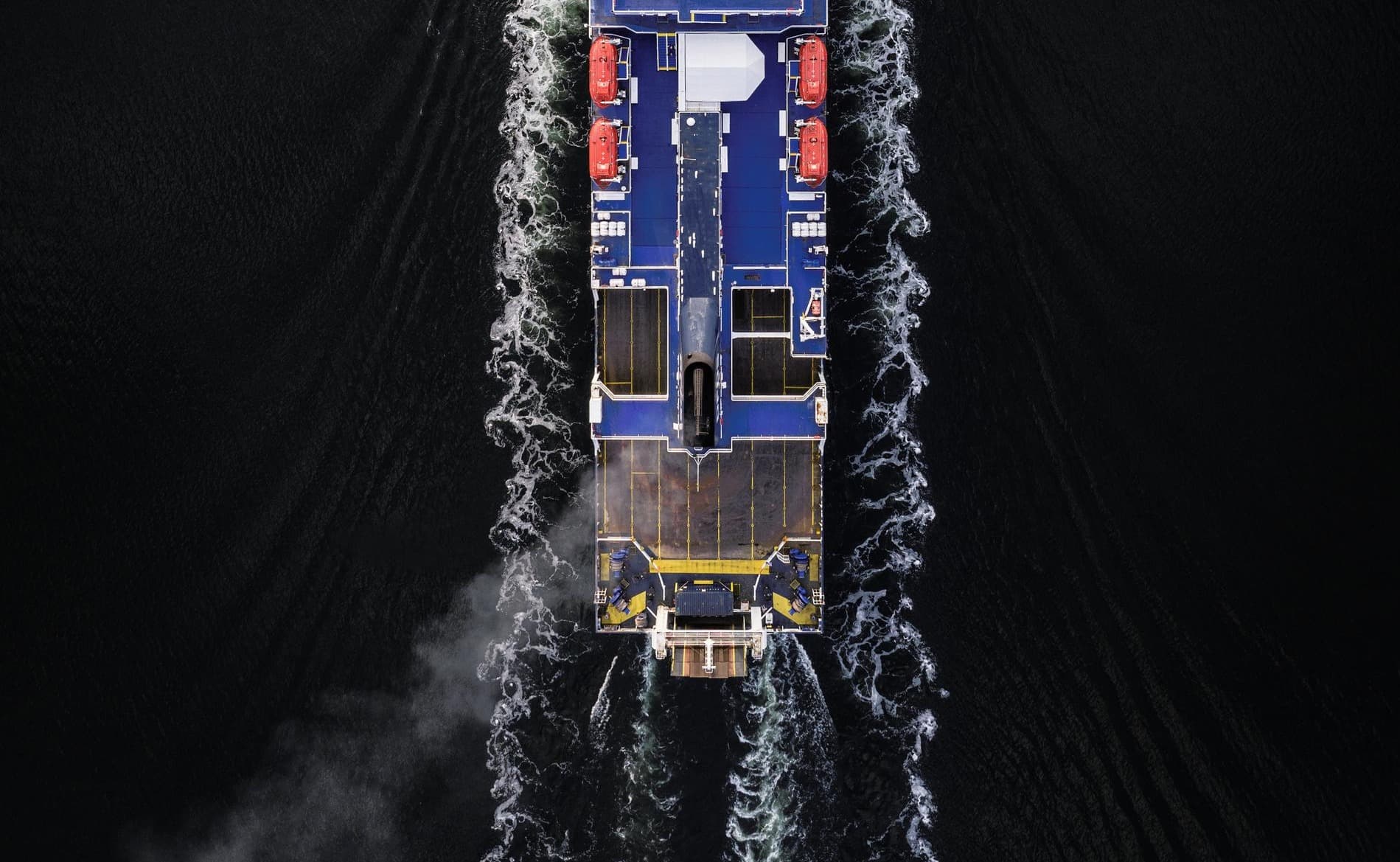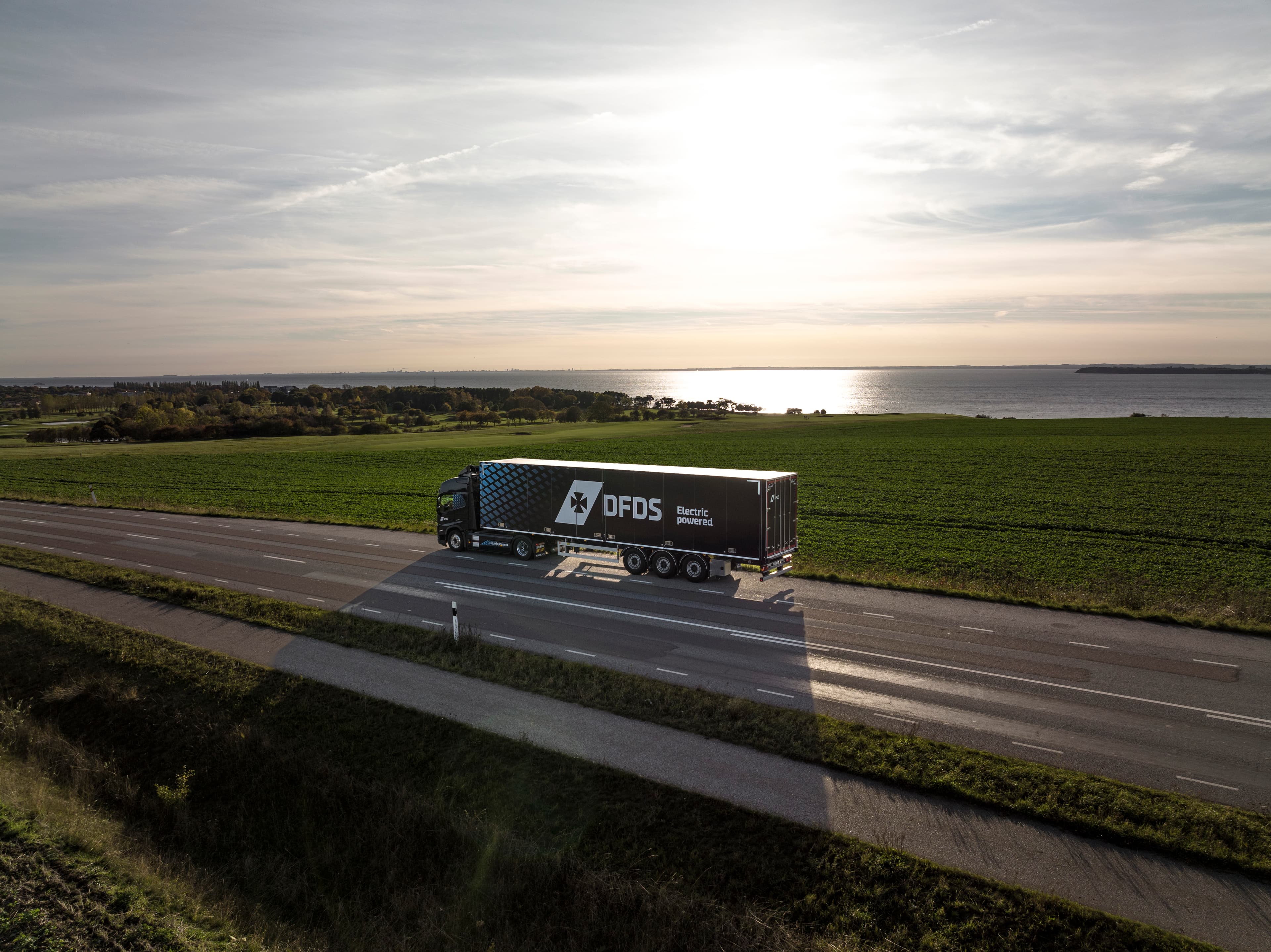Decarbonisatie via insetting

Waarom wij kiezen voor insetting in plaats van offsetting
Goederenvervoer levert een belangrijke bijdrage aan de wereldwijde uitstoot. Bij DFDS zetten we ons in om te reageren op de klimaatnoodsituatie en bij te dragen aan de decarbonisatie van toeleveringsketens.
Met dat als uitgangspunt investeren we veel in het realiseren van daadwerkelijke uitstootverlagingen via directe ingrepen binnen ons eigen transportnetwerk, ook wel 'insetting' genoemd. Bij 'offsetting' worden klimaatverzachtende projecten buiten de logistieke sector gefinancierd, bijvoorbeeld het planten van bomen, en vermindert de uitstoot van onze sector niet.
Daarentegen worden bij insetting decarbonisatieprojecten gefinancierd binnen de sector waar de uitstoot vandaan komt. Hierdoor wordt de verlaging van de bestaande uitstoot meetbaar en wordt de transitie naar een netto-nullogistiek ondersteund.
Door over te schakelen van transport op fossiele brandstoffen naar elektrische vrachtwagens en biobrandstof op schepen, geven we je een middel om de Scope 3-uitstoot te verlagen.
DFDS Decarbonised Solutions zijn een belangrijke mijlpaal in ons doorlopende duurzaamheidstraject. We zullen blijven investeren in nieuwe brandstoffen en technologieën om je klimaatdoelstellingen te ondersteunen en de CO2e-voetafdruk van de logistieke sector te verkleinen.
We bieden twee insetting-oplossingen
Directe verlaging in je logistieke activiteiten
Met onze directe oplossing wordt de uitstoot rechtstreeks binnen jouw logistiek verlaagd met behulp van biobrandstof op schepen en elektriciteit in vrachtwagens. De verlaging wordt toegepast op de specifieke route waarlangs je goederen worden vervoerd.
- Je kunt kiezen voor rechtstreekse verlaging op bepaalde routes in het DFDS-netwerk in heel Europa.
- Als de besparingen direct in je eigen transportactiviteiten moeten worden toegepast, voldoet deze optie aan je behoeften.
- Het proces wordt beoordeeld door een externe auditor. De besparingen worden uitgegeven via jaarlijkse certificaten waarop het verlaagde aantal ton CO2-equivalent is aangegeven.
Indirecte verlaging binnen ons netwerk
Indirecte uitstootverlagingen worden gerealiseerd binnen het DFDS-netwerk, maar niet noodzakelijkerwijs op jouw specifieke routes. De besparingen zijn afkomstig van het gebruik van elektriciteit op wegen en biobrandstof op veerbootroutes. Ze worden opgeslagen in onze database voor verlagingen van CO2-equivalent en uitgegeven als unieke certificaten.
- Je kunt kiezen voor indirecte verlagingen, ongeacht waar de goederen van jouw bedrijf worden vervoerd in ons netwerk.
- Het proces wordt beoordeeld door een externe auditor en je kunt de verlaging rapporteren bij je Scope 3-uitstoot.
- De besparingen worden uitgegeven via jaarlijkse certificaten waarop het verlaagde aantal ton CO2-equivalent is aangegeven.
Hoe kunnen we je helpen?
Hoe kunnen we je helpen?

Samen komen we dichter bij nul
Niemand kan alles alleen. In een wereld die steeds complexer wordt, is het belangrijk om samen te werken met partners die kunnen helpen bij het ontwikkelen van nieuwe en betere oplossingen.

Duurzame brandstoffen
We zijn betrokken bij verschillende projecten om fossiele brandstoffen te vervangen door duurzamere alternatieven om de koolstofuitstoot in zeevracht en logistiek te verlagen.

Onze reis naar netto nul
DFDS zet zich in om een antwoord te bieden aan de noodsituatie van ons klimaat en ons traject naar energieneutraliteit te versnellen. Ons doel is om in 2050 energieneutraal te zijn.